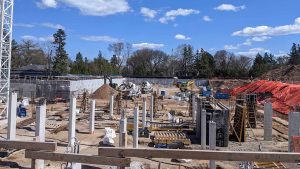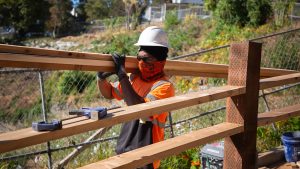As it does every five years, Statistics Canada recently (on October 25) provided an updated overview of housing in Canada based on the responses to the 2016 census. At the outset, the agency focussed on the rate of homeownership in Canada.
Of the 14.1 million households in Canada, 9.5 million owned their home. This puts the homeownership rate for the country as a whole at 67.8%. To put this number in perspective, since 1971 the homeownership rate in Canada has trended gradually higher from 60.3% to a high of 69.0% in 2011.
Despite a steady improvement in house affordability since mid 2007 largely due to persisting near record low interest rates, the percentage of households owning their own homes has retreated slightly over the past five years.
This decline was largely driven by a slowdown in the number of first- and second-time buyers following a baby boom induced surge in homeownership, through the latter part of the 1990s and through the first half of the 2000s.
From an international perspective, among the 35 countries in the Organization of Economic Co-operation and Development (OECD), Canada with a home ownership rate of 67.8% ranks 22nd. This is slightly above the rate in Australia (67.0%) and the United States (64.6%) but far below Slovakia which has the highest home ownership rate in the OECD at 90.3%.
Across the country, although the homeownership rate in Newfoundland slipped slightly from 78.7% in 2011 to 76.7% in 2016, it remained the highest in the country. In Quebec, the percentage of households owning their own home has historically been the lowest in the country.
However, between 2011 and 2016 it increased slightly due in part to higher rates in all five of the provinces census metro areas. The rate of homeownership retreated slightly west of Quebec, with the exception of Saskatchewan. The largest declines occurred in British Columbia, followed by Ontario, and Alberta.
As noted above, the changing age distribution of the country’s population has had a significant impact on the rate of homeownership. To illustrate this point, whereas the homeownership rate of 30 year olds stood at 55.5% in 1981, by 2016 this group’s propensity to own a home had fallen to 50.2%.
A significant contributor to this decline is a slowdown in household formation caused by an increased share (34.7%) of millennials (aged 20-34) choosing to live with their parents. By far the largest (42.1%) share of millennials remaining at home was in Ontario.
Based on data from the last three census surveys, this reduction in household formation in Ontario appears to be due to a combination of higher house prices (mainly in Toronto) and an increased propensity of the children of immigrants (i.e., second generation Canadians) to live with their parents.
In the short term, there is a significant risk that the impact of recently introduced new "stress test" rules on uninsured borrows by the Office of the Superintendent of Financial Institutions Canada will temporarily boost home sales late in 2017 and subsequently dampen them early in 2018.
In addition, a number of analysts expect that a gradual rise in mortgage interest rates will cause home sales to retreat slightly in 2018. However, over the longer term, a number of factors suggest that the rate of homeownership in Canada will continue to trend higher.
First, sustained net international migration should boost demand for both rental and ownership dwellings. Second, household formation should increase as the children of immigrants gradually move away from home. Third, although more millennials in their 20s and 30s are currently choosing to rent rather than to buy, ownership rates jump sharply among 35-54 year olds.











Recent Comments
comments for this post are closed